Many facial care routines involve washing your face, applying cleansers and finishing with moisturizer. If this is your skincare regimen, then you are missing an essential step – toner.
Toner acts as a primer for your face before you applying moisturizing creams. You wouldn’t apply your makeup without a primer, would you?
Toner opens the pores, meaning more skin-nourishing moisturizer is absorbed.
As a teen, you likely slathered toner on your face without knowing the benefits or even the purpose of the toner. So, before we get into how to make DIY toners, let’s explore exactly what a toner does.
What is Toner?

If you were a teen in the 90s, your first experience with toner was a stinging, dehydrating liquid rubbed onto the face with a cotton ball. Toners have undergone a major glow up in the years since then. Applying toner back then was an afterthought; now it’s an integral part of many beauty routines, including the popular Korean 7-step facial care routine.
Toner removes any leftover makeup, dead skin or grim that wasn’t taken care of by washing your face with a cleanser (or a double cleanser.) It can reduce redness and inflammation while smoothing the skins surface.
If you’re prone to oily skin or acne, toner reduces sebum production. Sebum is the oily secretion from the hair follicle glands. The oil is often transferred to the face by constantly touching your hair, then your face or secrets from your facial pores.
In the past, toners contained too much alcohol, which made them too astringent and dehydrating. They were generally deemed unnecessary, though widely used by teens everywhere.
Nowadays, toners are mainly alcohol-free and used for all skin types, not just oily or acne prone. They are now considered an integral part of skin care.
In short, skin toner is an astringent liquid that reduces oil and improves the skin’s condition.
Store-bought toners can be expensive and most contain harsh chemicals that aren’t great for your body. There are many natural ingredients you can use for a DIY skin toner, including apple cider vinegar and green tea. Read more below for recipes and other skin toner ingredients.
Skin Toner Benefits
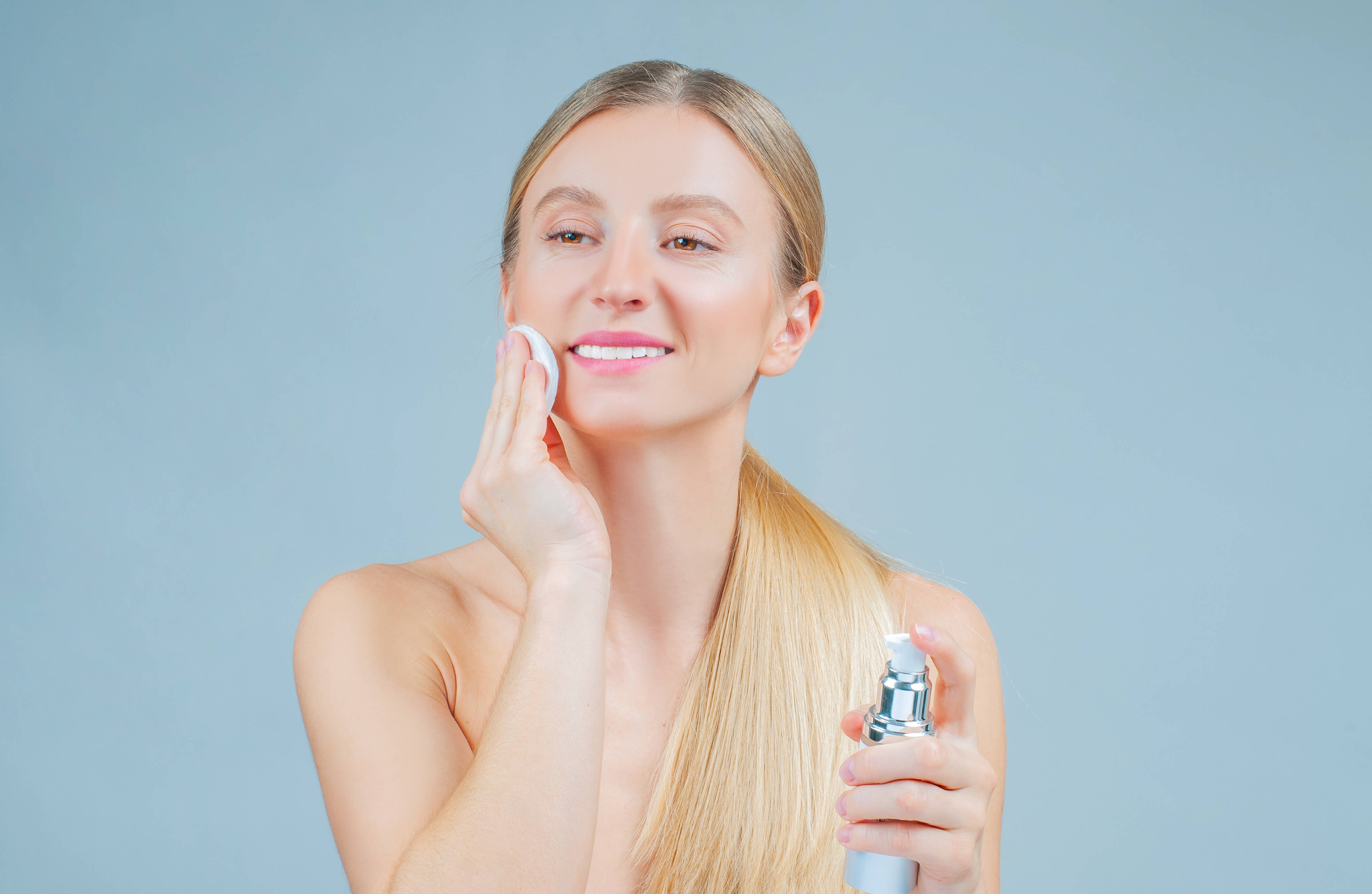
Toner is a fast-acting liquid that quickly hydrates the skin while removing dead skin cells and other dirt from the skin. It leaves behind fresh, glowing skin. It also preps the skin of moisturizers and serums.
Additional benefits of skin toners include:
- Toner helps maintain the pH balance of the skin – too much pH results in acne or oily skin. Too little pH leaves skin dry and rough.
- It shrinks the size of skin pores – Pores are essentially tiny hair follicles and toner can make pores visibly smaller.
- Toner helps prevent blackheads and acne – Acne and blackheads are caused by too much oil and toner helps reduce oil production.
- It removes dirt and makeup – Washing your face isn’t enough to remove all the dirt, makeup and dead skin cells. Toner is the last defense.
- Toner unclogs the pores of the skin – Oil can clog the pores and toner helps clear away the oil, leaving your pores unclogged.
- It helps control the excess production of sebum, which causes oily skin – Unclogging pores and wiping away excess dirt helps stop excess sebum from producing.
Top Toners for Every Skin Type
Toners are an essential part of the facial care routine. There are hundreds of toners on the market and it can be difficult to choose one that works with your skin type.
We’ve scoured Amazon for toners and these are our top 3 choices:

Photo Credit: Amazon
This toner by TruSkin Naturals comes in the form of a misty spray. It is good for all skin types and hydrates the skin. Witch hazel can help prevent acne-causing bacteria from entering your pores. Vitamin C is great for reducing visible acne scars, giving your skin a healthy, radiant appearance.
This promising review touts the TruSkin toner’s anti-aging properties:
“I love it! Everything seems to be working well. I've noticed a decrease in visibility of my wrinkles around my eyes as well as the dark spots on my face.”
Neutrogena Oil- and Alcohol-Free Facial Toner, with Hypoallergenic Formula

Photo Credit: Amazon
Neutrogena has long been one of the most popular and respected companies that sells premium products for the face and body. This toner purifies and cleanses the skin without stripping away the skins natural moisture.
This reviewer really LOVES the Neutrogena toner:
“LOVE, LOVE, LOVE this toner. It's alcohol-free, which is SUPER important for skin, while still working to balance the pH levels of the face after cleansing!”
C&C by Clean & Clear Tough Love Acne Clearing Peppermint Facial Toner

Photo Credit: Amazon
Clean & Clear’s very first product was a skin cleanser. It is considered a more budget-friendly version of Neutrogena and both are owned by Johnson & Johnson. Clean & Clear focuses mainly on anti-acne products.
This specific toner helps treat and prevent blackheads and pimples.
One reviewer loved the clean feel after using the toner and gave a shout-out for the company’s love of animals. They also liked that the product came with a pump, which helps prevent overuse.
DIY Toners for Every Skin Type
Homemade toners have all the benefits of store-bought toners (acne prevention, minimizing skin pores, reducing wrinkles, etc.) without the harsh chemicals.
We’ve found the best natural ingredients for DIY toners
Green Tea – Best for dry, oily or normal skin
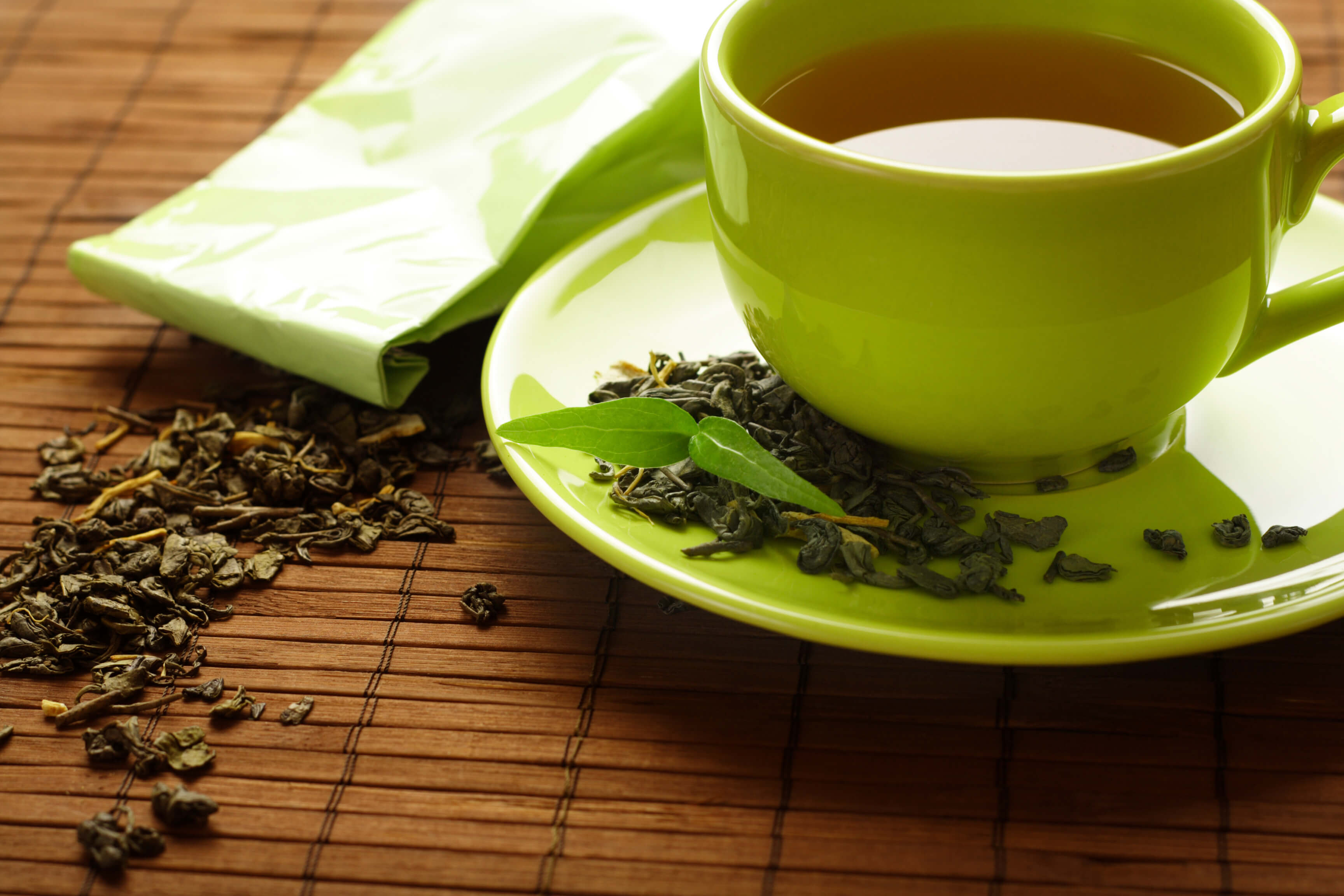
Green tea has been shown to have many health benefits that can be reaped from drinking it or applying it to the skin. The protection from UV rays offered by green tea helps improve skin condition and prevents wrinkles and other signs of age. The antioxidants found the green tea fight inflammation and bacteria, which helps prevent acne. Additionally, the antioxidants fight signs of aging through cell regeneration.
Green tea is a natural astringent that shrinks pores and limits the production of sebum. It can also help alleviate puffiness around the eyes by shrinking blood vessels. You can brew the tea and apply it to your face after the tea cools.
Apple Cider Vinegar – Best for normal or oily skin
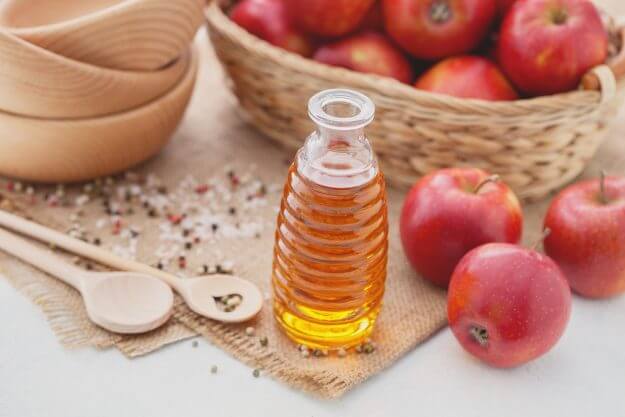
What can’t apple cider vinegar do? Another natural astringent, apple cider vinegar has been known to shrink large pores and naturally tighten the skin.
If you have oily skin, the apple cider vinegar will help balance the skin’s pH and control excessive sebum production. Apple cider vinegar contains potassium, which helps keep the skin hydrated and the pores unclogged.
Tea Tree Oil – Best for all skin types
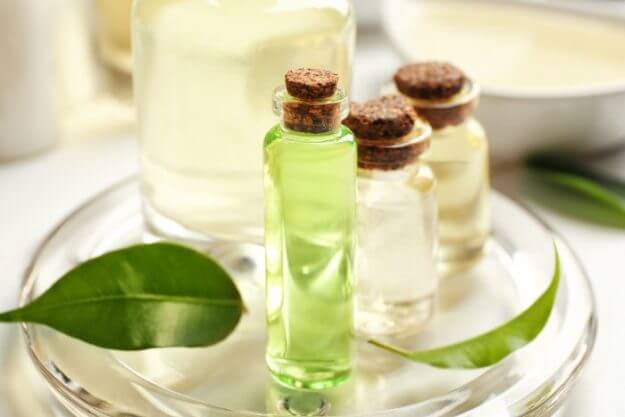
Tea Tree oil contains antibacterial properties that kill the bacterias that cause acne and blackheads. It won’t strip your skin of natural oils, but it will soothe acne scars and protect the skin from infections. It can also help reduce the appearance of acne scars.
The antiseptic properties can help oily skin by reducing the production of oil while soothing the skin.
The Tea Tree oil shouldn't be applied directly to the skin. It needs to be diluted with water or witch hazel before used as a toner.
Other natural ingredients that can be used to make toners:
Fennel – rejuvenates skin and reduces inflammation of the skin
Honey – honey moisturizes the skin
Chamomile – soothes skin irritations
Rosewater – dry or fresh rose petals soaked in water help balance oil production
Hibiscus – contains anti-aging vitamin C
Lemon juice – reduces excess oil on skin
Grapefruit rind – the vitamin C hydrates the skin
Cucumber water – the cucumber has a cooling effect to soothe skin inflammation
How Often Should You Use Toner?
Skin care is an important part of your daily beauty routine. Like washing your face or brushing your teeth, skin toner should be used on a regular, daily basis. Many people prefer morning for their facial care, but nightly cleanings are great for washing off the day’s dirt and makeup.
If your skin is dry or beginning to show signs of age, you would benefit from apply toner (and cleansing and moisturizing) twice per day. Toner should be applied every time you clean your face.
Do You Moisturize After Using Toner?

Moisturizing cream or lotion should be applied to the face directly after toner because the toner opens up the pores of the face for optimum absorption. The toner helps lock in the hydration of the moisturizer.
How many times you moisturize per day is up to you, but it should be done at least once a day for healthy, glowing skin.
Conclusion
Whether you have oily, dry or sensitive skin, all skin type will benefit from the use of a toner. The toner is applied to the skin after washing, but before using a moisturizer or nourishing serum.
Show the world your best face with these DIY toners.
References
http://alluringsoul.com/best-homemade-face-toner-flawless-skin/
https://helloglow.co/ways-to-make-homemade-toner/

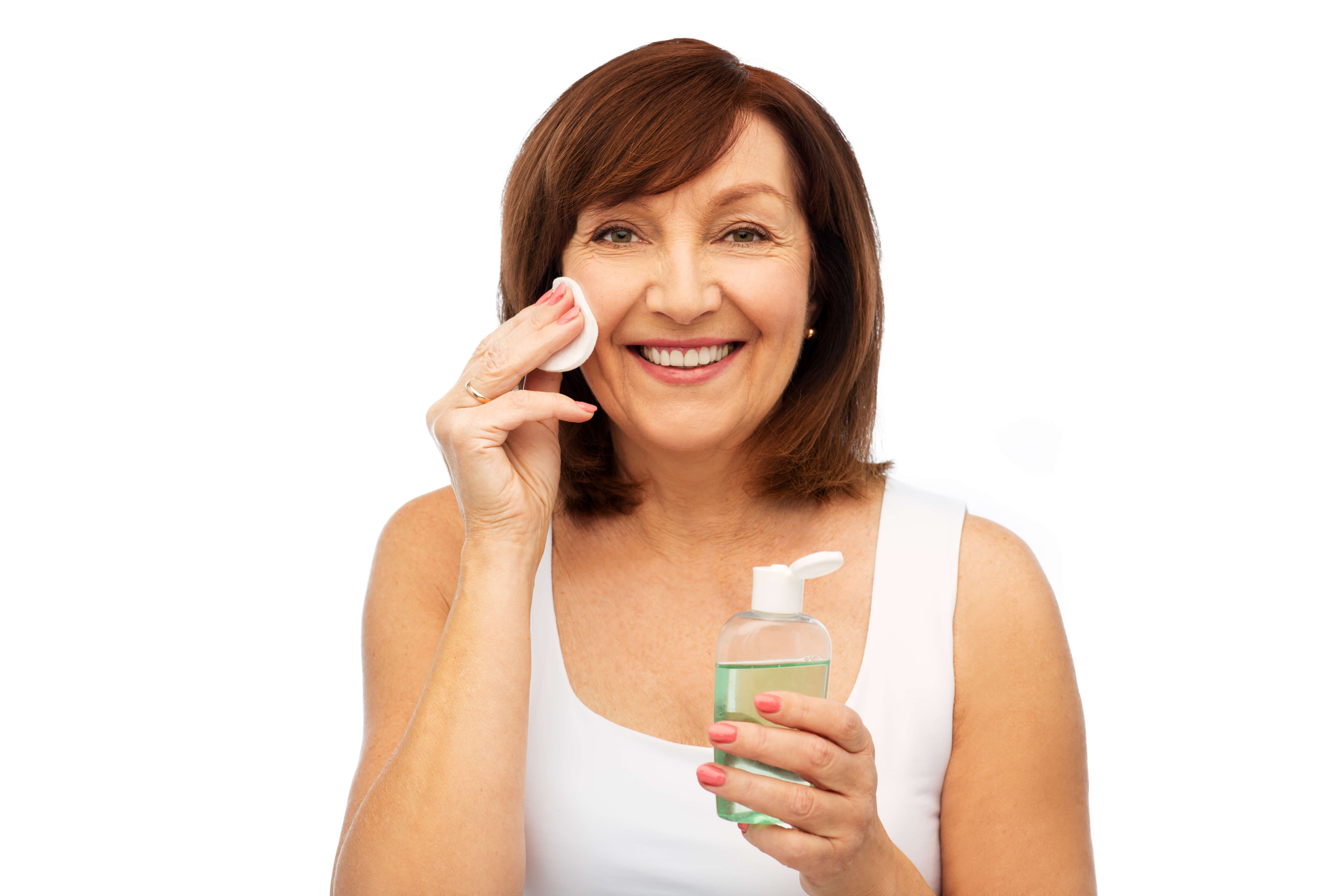
 Cetaphil Cleanser
Cetaphil Cleanser  Beauty bars: The New Soapy Skincare Trend
Beauty bars: The New Soapy Skincare Trend  Everything you Need to Know About Facial Extractions
Everything you Need to Know About Facial Extractions  Cicapair Tiger Grass Cream
Cicapair Tiger Grass Cream  Skincare Tips for Summer
Skincare Tips for Summer 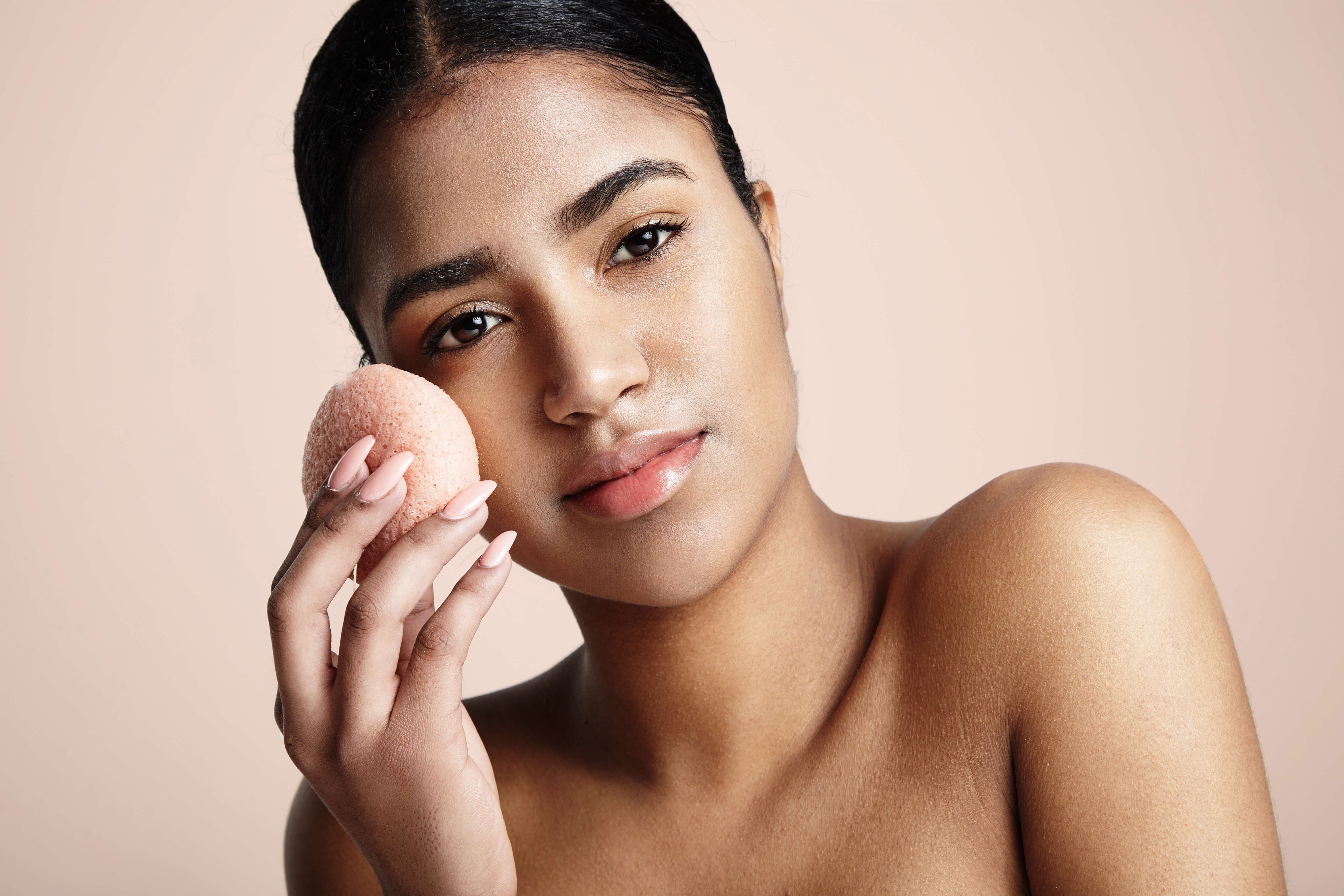 Reasons Why You Need to Start Using a Konjac Sponge
Reasons Why You Need to Start Using a Konjac Sponge